Northern skies, endless possibilities
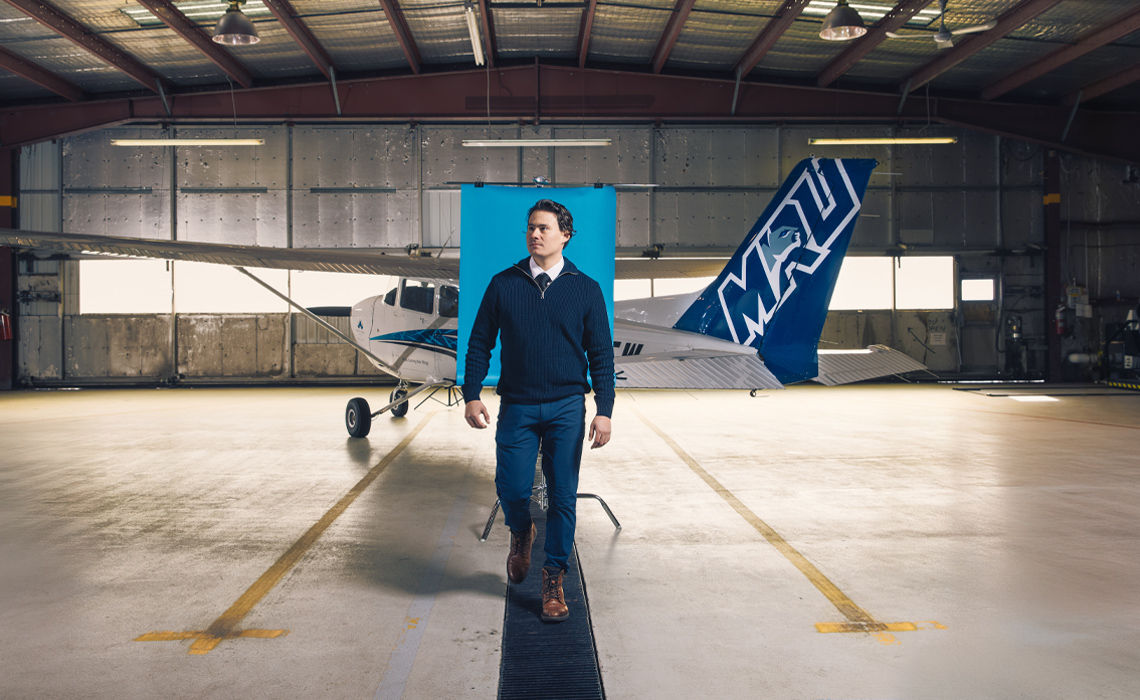
Up in Nunavut, tucked along the windswept shores of Hudson Bay, lies Rankin Inlet — a place where life moves with the rhythms of the land, the sea and the sky. For Sid Nichol, growing up in this tight-knit northern hamlet meant adventure was an everyday part of life.
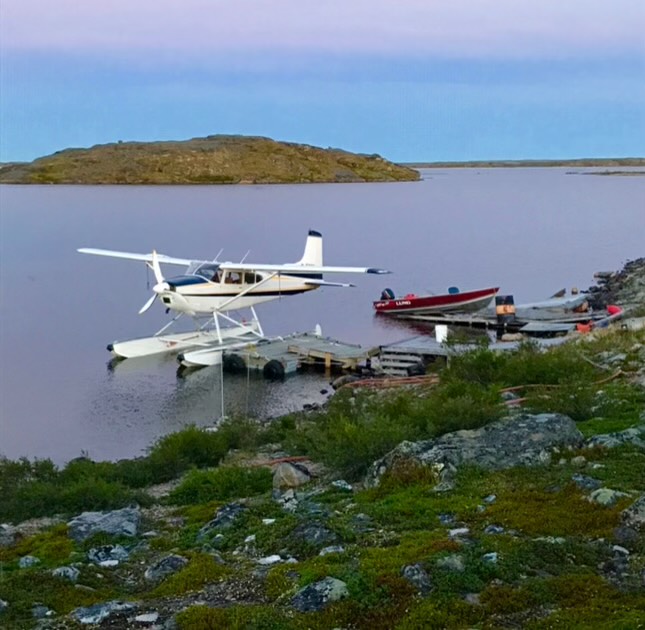
"We were able to use the whole community as our playground, for nothing but good, of course," he says with a smile.
Summers were filled with softball games, barbecues at the cabin and fishing during the Arctic char run, where half the community would gather along the riverbanks. Winters were unforgiving, but never a reason to stay inside. Nichol spent them playing hockey, riding snowmobiles across the tundra and watching the northern lights dance in shades of green and purple.
“It could be minus 40, but we're still gonna be out there doing something,” he says. “I’m grateful to come from a place like Rankin Inlet and super fortunate to call it home.”
A future waiting to take off
It was in those wild, open spaces that Nichol first envisioned a future in aviation.
"My buddy’s dad had a float plane, so I was fortunate to get out there and spend some weekends with them. His camp was inland a little bit, so you got away from town and it’s a beautiful spot with great fishing. You’ve got muskox hanging on the side of the lake in the mornings, and it's just incredible,” he says.
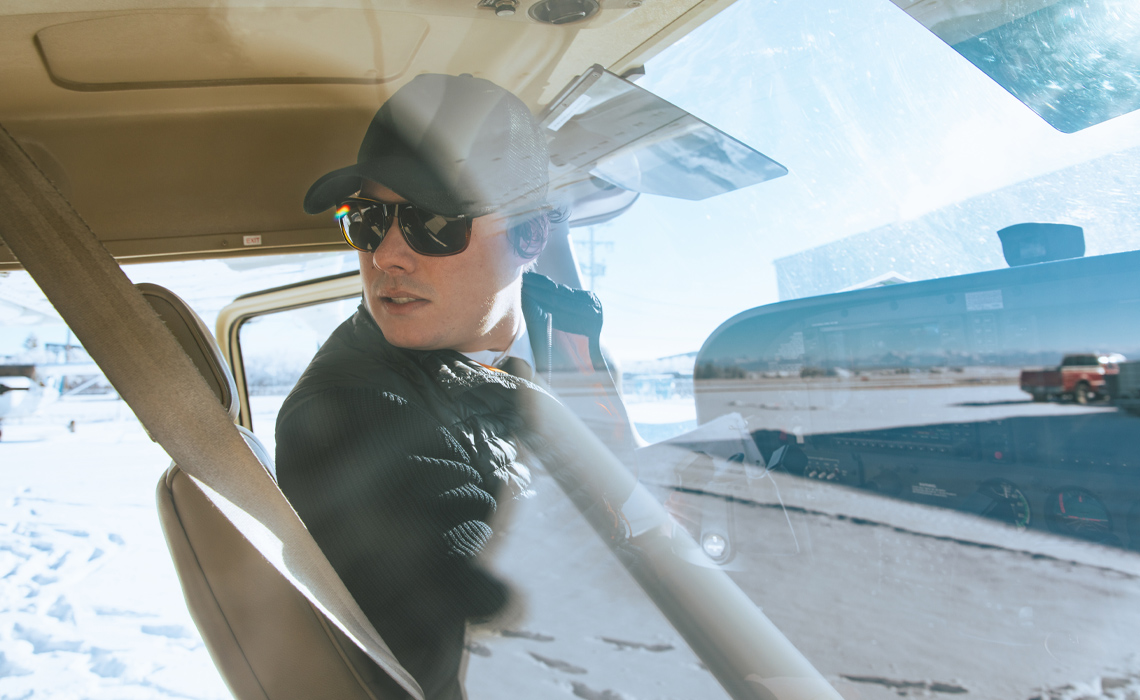
“That’s when I told myself that one day I’d get my license and own my own airplane. The thought of taking off on a Friday and going completely off-grid — that’s what excites me.”
Flying wasn’t just a dream; it was also a way of life in the North. With no roads in or out of Rankin Inlet, air travel was a necessity rather than a luxury, bringing food, medical care and a connection to the rest of the world.
“I’ve been on a plane since I can remember, that was our main mode of transport. Even going to hockey tournaments as a kid, we would fly,” Nichol adds, laughing that it sometimes felt like they were travelling first-class. “The other communities used to think that was pretty cool, because they used to drive and we always went by airplane.”
Changing course
Despite his early passion, Nichol didn’t pursue aviation right away. He first moved to Brandon, Manitoba, and earned his business diploma. But office life wasn’t for him.
"I wasn’t enjoying myself. And if I’m not enjoying something, I’ll find something else that I do enjoy."
Nichol set his sights back on flying, and a conversation with Jason Kilabuk, Canadian North’s director of Inuit employment and talent strategies, helped get the ball rolling.
"I was just asking him, 'Hey, I’m looking for a scholarship, anything that helps to get me through this first phase of flight training.’” Kilabuk responded with an unexpected question: Sid, want to go to Calgary?
“He told me about the partnership between MRU and Canadian North and asked if I wanted to be one of their sponsees.” Although Nichol had never heard of MRU or the aviation diploma program, it took only some quick research for him to be all in.
"I called him back the next day and said, 'Yeah, let's do this. Can we go next month?'" By the end of December, he was on his way to Calgary. “Everything just fell into place. I really feel like it was meant to be.”
Taking flight
Nichol dove into flight training immediately and began working toward his commercial pilot’s certification. His previous education covered a good portion of the business courses, allowing him to focus more on flying.
“My favorite part is just how tight-knit the group is. It's kind of like high school; you get to know each other on a personal level. You get to know your instructors really well, they’re always just a text away,” he says. “And that's what I love about it here. Everyone is willing to help at MRU, it’s a great program.”
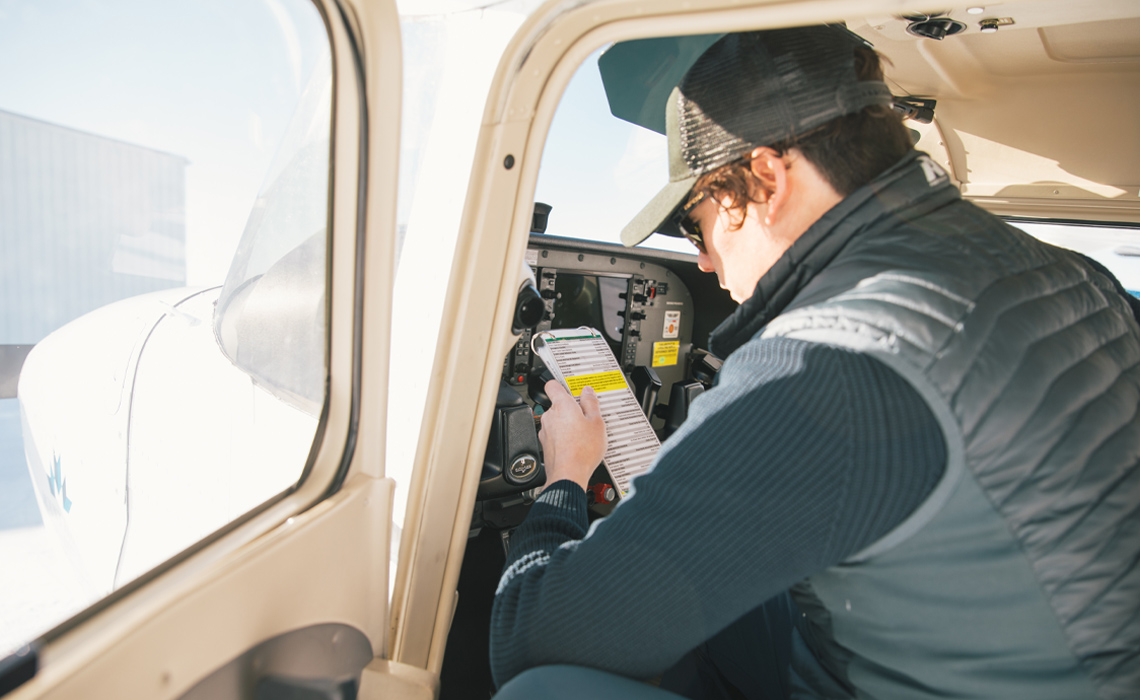
But the true highlight of his time so far? His first solo flight.
“That moment when my instructor Kelly got out of the airplane, and I taxied down to the runway alone — that was something else,” Nichol says. “Pure excitement, a little bit of nerves, a bit of fear. There’s this split second of, ‘What am I doing?’ But then I started to relax, and ever since then, it’s just been a fun ride.”
The same feeling of freedom that defined his youth — exploring the outdoors, venturing into wide-open spaces — now carries over into the skies.
“It’s peaceful up there. You're in the middle of the sky and you have a bird's eye view of everything. And there's definitely a connection there with freedom,” he says.
Returning North
While getting his commercial licence will open doors worldwide, Nichol hopes to return to the North and gain experience with airlines in Nunavut, Yukon or the Northwest Territories. Still, he hasn’t let go of the dreams sparked by his childhood adventures.
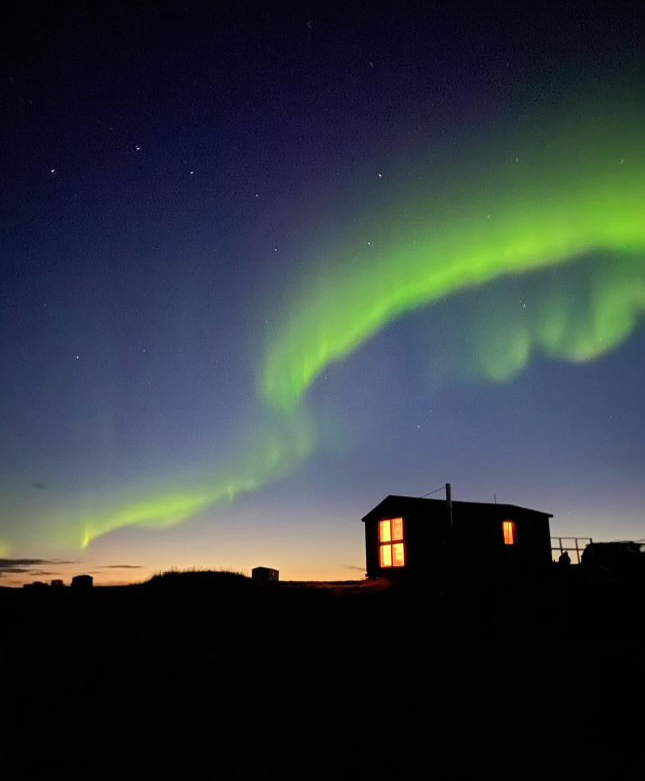
“Honestly, if I had to choose between flying commercial or bush flying, I’d rather fly off-grid,” he says. “Eventually, I’d love to own my own airplane and work with outdoor outfitting companies in Nunavut's growing tourism industry.”
He also hopes to inspire others.
"I just want to pave the way for the people up north, the Inuit pilot population, because there aren’t many, and it’s a cool industry," he says. "Helping kids back home when I get to the industry, that’s definitely something I want to do."
As he looks ahead, one thing is certain: no matter where he lands, Nichol will always be connected to the skies above Rankin Inlet, to the northern wilderness that shaped him and to the freedom of flight that first captured his imagination.
For Nichol, the sky isn’t the limit — it’s just the beginning.

